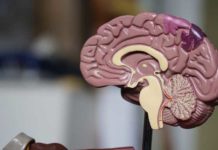
The brain of the people who speak two languages works more efficiently. This conclusion was made by the American scientists from Northwestern University and the University of Houston.
American researchers have found that bilingual people use less power of their brain to perform various tasks, compared with people who speak only one language. Having applied functional magnetic resonance imaging, the researchers studied the brain activity of 18 monolingual people speaking only English, and 17 bilingual people speaking both English and Spanish, who showed the same results during the tests of memory conducted before starting the experiment.
Bilinguals spoke both languages equally well, as they grew up in mixed families. During a series of tests on the degree of language proficiency, the participants were asked to identify the object after they had heard its name through the headphones. For example, they were shown two pictures with the objects that had the same sounding in English, such as cloud and clown. They had to select only the pictures whose names they had heard through the headphones.
Although both monolingual and bilingual people have correctly identified all the objects using approximately the same amount of time, the participants from the first group strained their brain much stronger, especially in the areas where the achievement of certain goals was controlled. This was stated by a senior researcher Viorica Marian, professor of communication sciences and disorders.
In the previous studies, Marian studied eye movements of two groups of people who spoke Russian and English. They had to watch the objects on the table and properly differentiate them. Before defining these objects, the participants of the study heard the words that sounded practically the same, but they meant different things in different languages. For example, when the participants heard the word marker, some of them looked directly at it, while others looked at a stamp because in Russian these words (marker and marka) sound similar. But it did not last for a long time. It was found that bilingual people could disable the knowledge of one language at such moments to fully concentrate on the other one.






